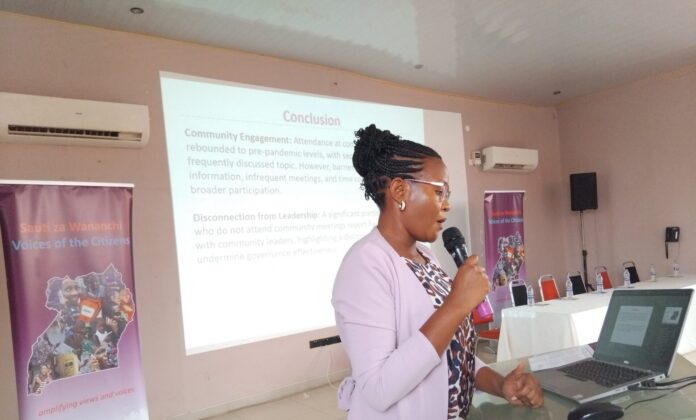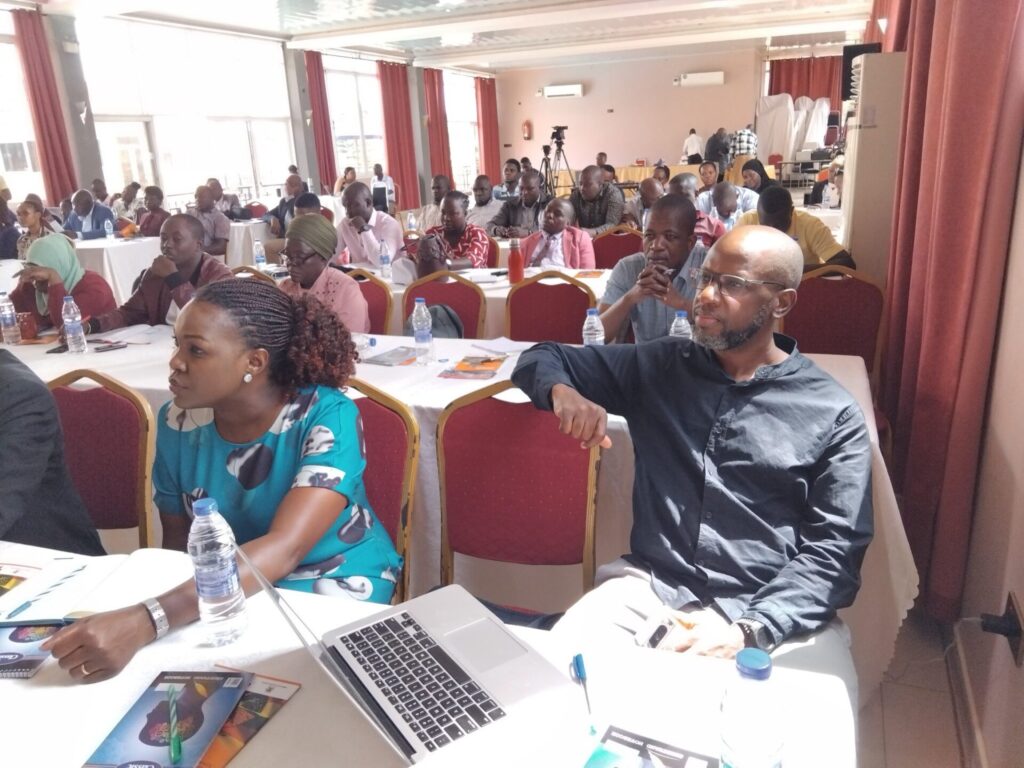
Mbale – Leaders in Mbale City are worried about the spread of false information through word of mouth, following a recent report by Twaweza.
The report, titled “Who’s Engaged, Who’s Excluded,” reveals that a staggering 36% of people in eastern Uganda rely on word of mouth for information.
Marie Nanyanzi, Programs Manager for Twaweza’s Sauti za Wanaichi, presented the report findings before stakeholders in Mbale City on Wednesday.
Another key finding is that the eastern region has a significantly higher percentage of people attending public meetings to gather information.
“85% of the population in this region reported attending at least one meeting in the past year, which they use as a primary way to stay informed,” noted Nanyanzi.
The report also reveals that the Eastern region lacks a dominant language, with residents using Lusoga, Ateso, Luganda, English, and other languages to seek information.

Reacting to the report, Hussein Mugamba, a vendor at Bugwere Market in Mbale City, shared his personal news consumption habits: “I get news updates on my phone most times, sometimes from fellow vendors, and catch up on TV after work. To verify accuracy, I research information from others. I highly trust information from YouTube over other channels. Due to my busy schedule, I rarely attend public meetings.”
Asumin Nasike, Resident City Commissioner of Mbale, urged citizens to verify information through credible sources and avoid sharing unverified news, emphasizing that spreading false information is against the law.
Meanwhile, Nasike noted that the current bottom-up planning approach allows citizens to contribute to budget decisions through conferences. She emphasized the importance of active citizen participation, as it directly influences budget allocations and ensures community needs are addressed.
Mayanja Gonzaga, Commissioner Monitoring and Evaluation Office of the Prime Minister, underscored the importance of citizen involvement in development projects, stressing that their participation is crucial for successful implementation.
“To truly serve the citizens, we must prioritize their involvement and participation in our planning processes. The question is, how do we effectively bring them on board? First, thorough mobilization is crucial to ensure all citizens are engaged in issues affecting them. Second, transparency and accountability are vital – we must share our plans, progress, and challenges with the community,” said Gonzaga.
Overall, the data collected from 2,741 respondents across the country between January and February 13th, 2024, reveal that radio leads as citizens’ main source of information at 56%, although it continues to show a decline, with other sources gaining ground, including TV (16%), word of mouth (16%), internet (4%), and social media (3%).

